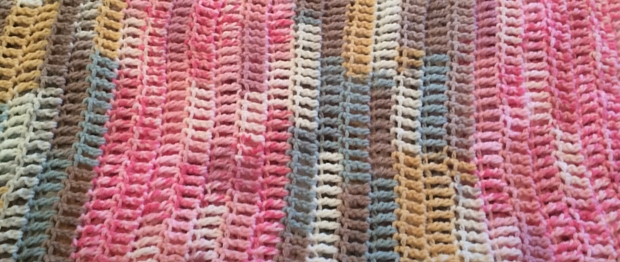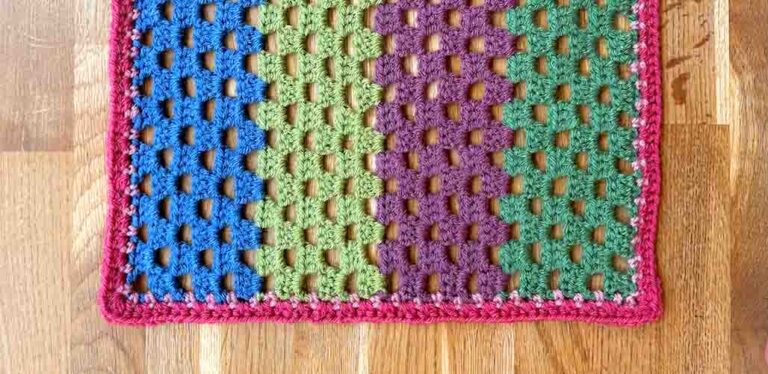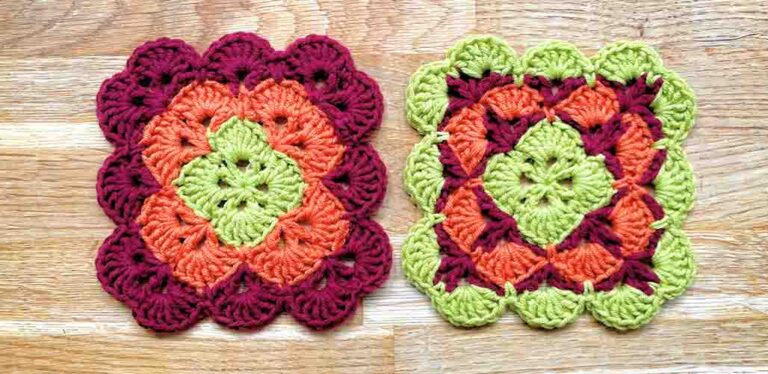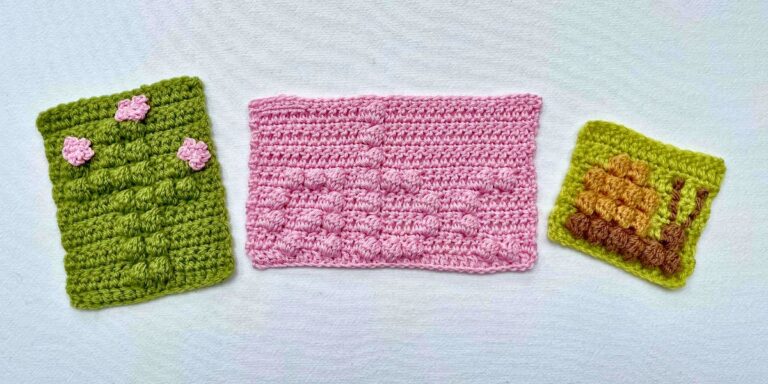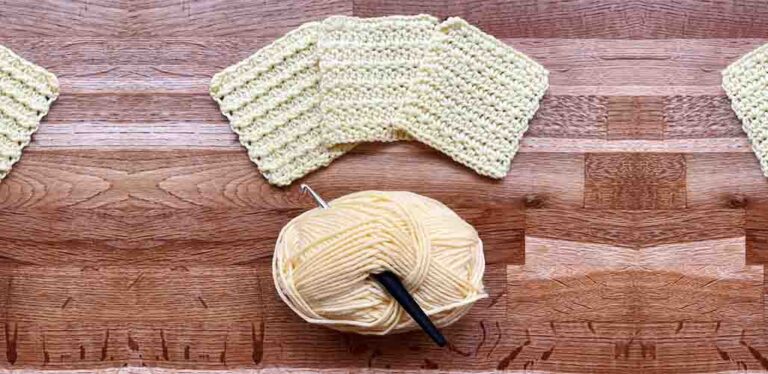Crochet Blanket Styles and Stitches
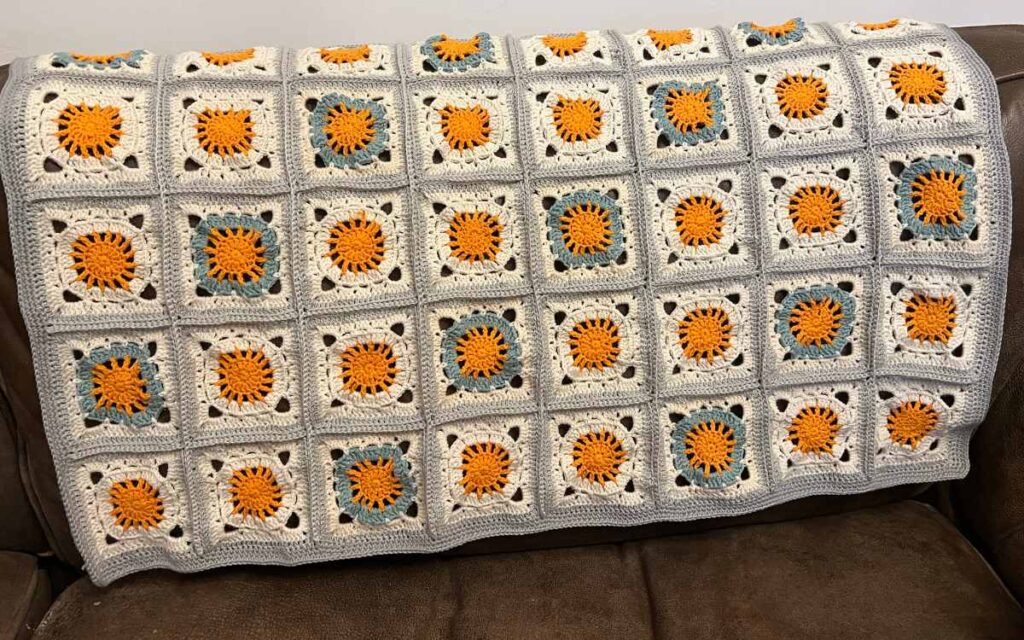
Crochet blankets have so much potential. Even if you spent the rest of your days just producing granny square throws, you could easily never repeat a design.
Just swapping colors or exchanging a few stitches can have a huge impact on the look of your afghan. And the more crocheting you do, the more variations you’ll discover.
Today I’m going to share my favorite crochet blanket styles and stitches. I’m going to help you pick your next project, based on what you want to use your new blanket for. And to decide between some seriously cool, cute and fun techniques.
The Most Popular Crochet Blanket Styles
It’s wonderful to have so much variety, but it can also be overwhelming if you’re new to the hobby and unsure where to start. The most universally popular tried and tested types are:
- Granny blankets
- Corner to corner blankets
- Temperature afghans
Granny Blankets
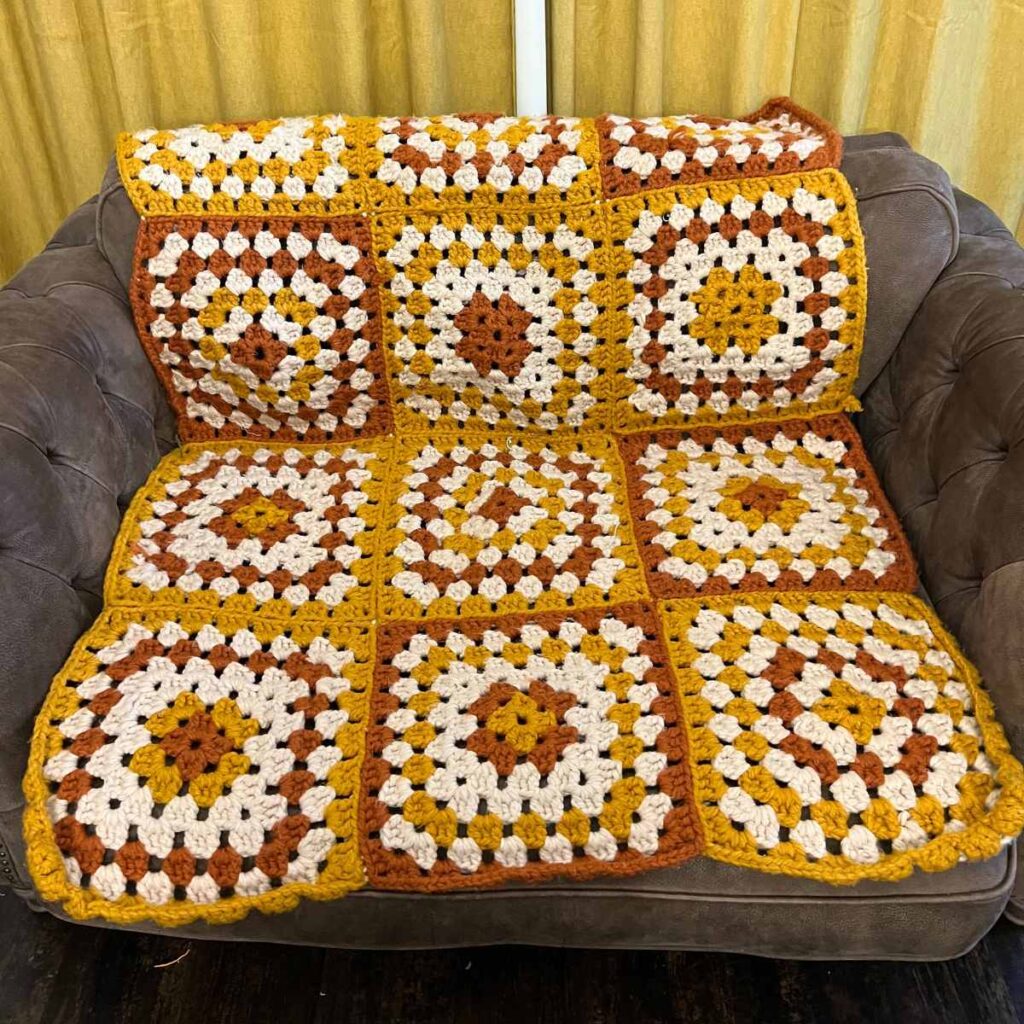
A simple granny square, stripe or hexagon design is the easiest crochet blanket for beginners.
This style isn’t just comprised of easy to form stitches, it works up really quickly. This is important for keeping new crocheters motivated, before they have the confidence to know it’s going to be worth all that time and effort.
You can also make granny square blankets super complicated, including shapes, patterns and pictorial designs like my sunny skies blanket!
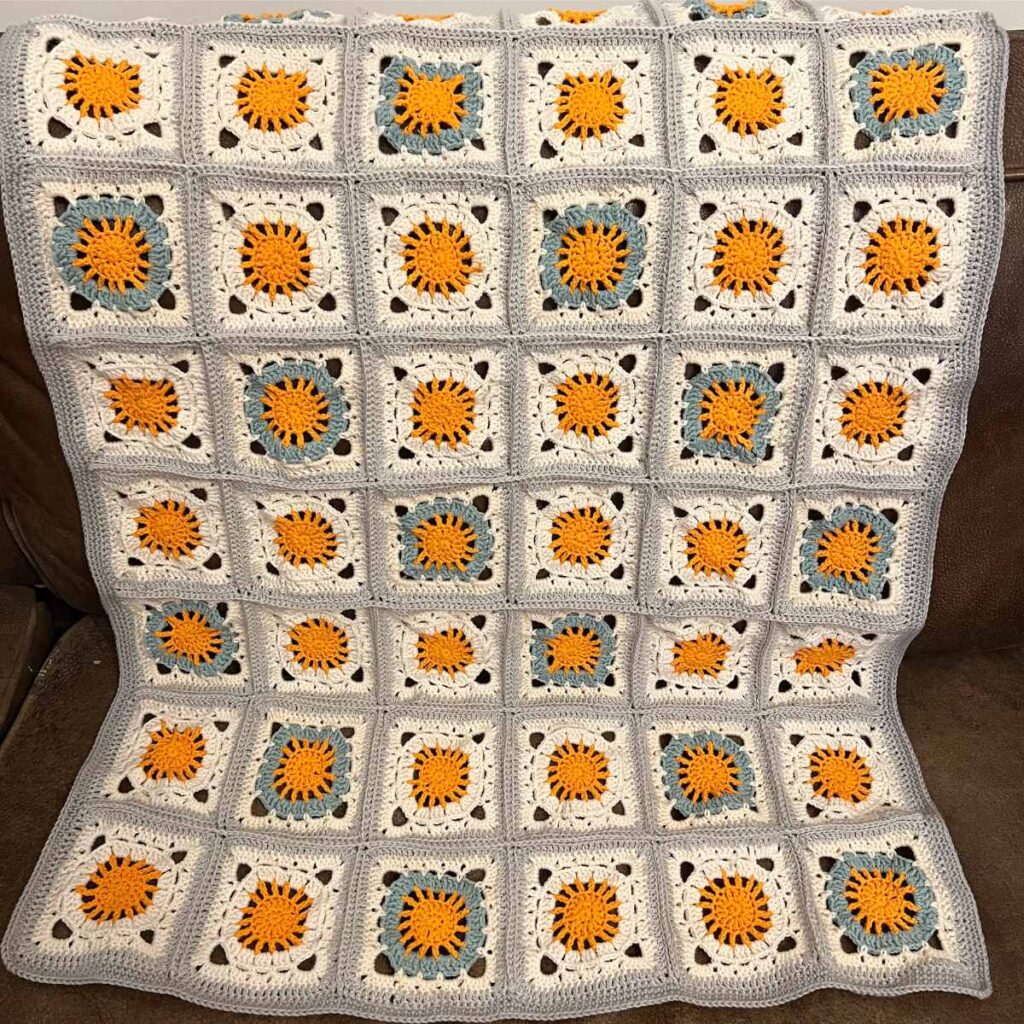
Corner to Corner
Corner to corner crocheting is also known as c2c or diagonal box stitch crochet. This is because it’s worked diagonally, from the edge of the blanket rather than in a straight line or round.

C2C crochet has a pixelated effect that works really well for pictorial designs, especially if you like blocky images like MineCraft. Just make sure you turn over the blanket repeatedly as you work, as it’ll end up rather wonky.
Complex corner to corner blankets look intimidating, but like so many things once you’ve got the hang of the pattern they are quite straight forward. More suited to crocheters with a few months experience under their belts, they are a really fun way to work up some cool square designs.
Temperature Blankets
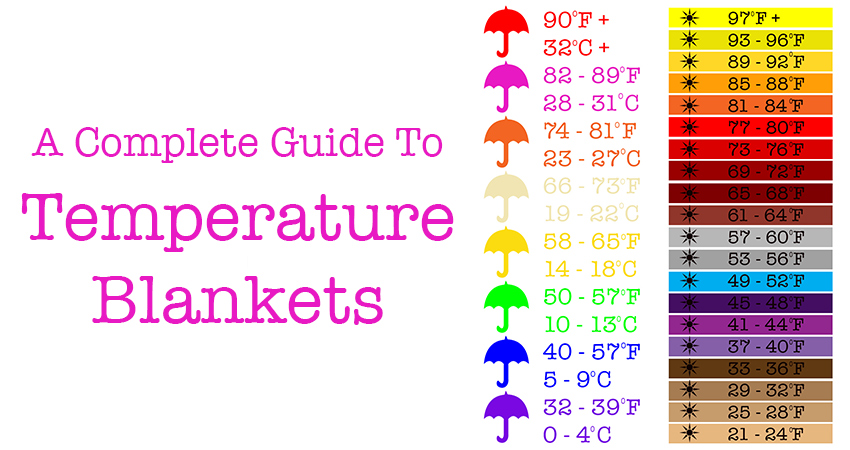
Temperature afghans are the perfect way to make an entirely unique color pattern. The basis of the design is formed from a temperature chart where different degrees equal different yarn colors.
You can find one of the oodles of ideas online, or make up your own chart that works well for your local climate and ideal color palette.
Ideal Materials
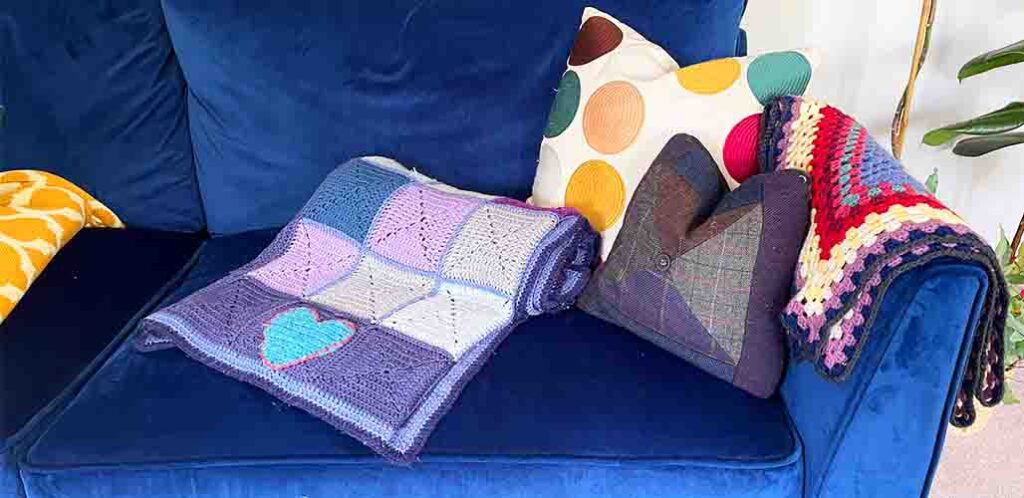
Yarn comes in a huge range of different fibers, strengths, elasticities and finishes. Some are easy to wash, others need a seriously delicate touch even for handling. You’ll find cheap, mass produced, manufactured styles, and those that are natural or totally eco friendly.
The best yarn for crocheting blankets will depend on your budget, the availability of the yarn and on what you’re going to use your afghan for. Textures, weights and of course the colors you are going for also play a part in the decision. How much yarn you’ll use will vary depending on the size of blanket you make and the stitches you employ.
As a general rule of thumb, when you are crocheting a blanket it’s a good idea to pick a yarn that has a soft feel but a sturdy strength, which can survive a gentle wash and looks quality even after a few months of use.
Uses and Purposes
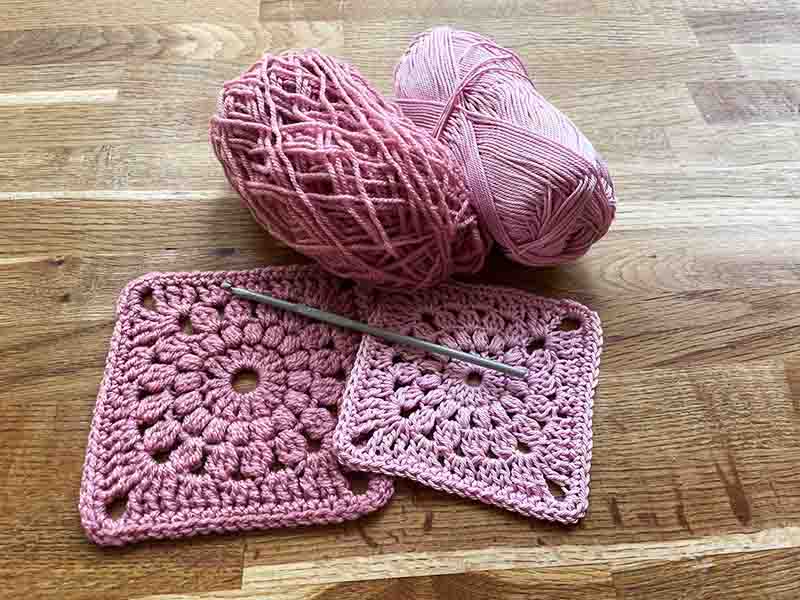
My crochet blankets tend to be made up for babies, as gifts or just on a whim. Which means I often have blankets laying around that don’t really fit into any of my plans, or with the decor in my home either. It’s not ideal.
Don’t be like me, be a sensible crocheter and plan ahead. Plan your blanket to fit a pram, cot, stroller, crib or bedspread. Think about whether it’s going to be twin, full, queen or even king sized when complete.
Crochet blankets also make fantastic throws for couches and armchairs. These are big projects, but totally worth the extra effort when they come together.
Crochet Blanket Stitches
There are endless stitches you can use, and put together, when crocheting a blanket. Any crochet technique can be applied either into or onto a blanket. But these are some of the most popular techniques for a standard afghan project.
Single, Double and Treble Crochets
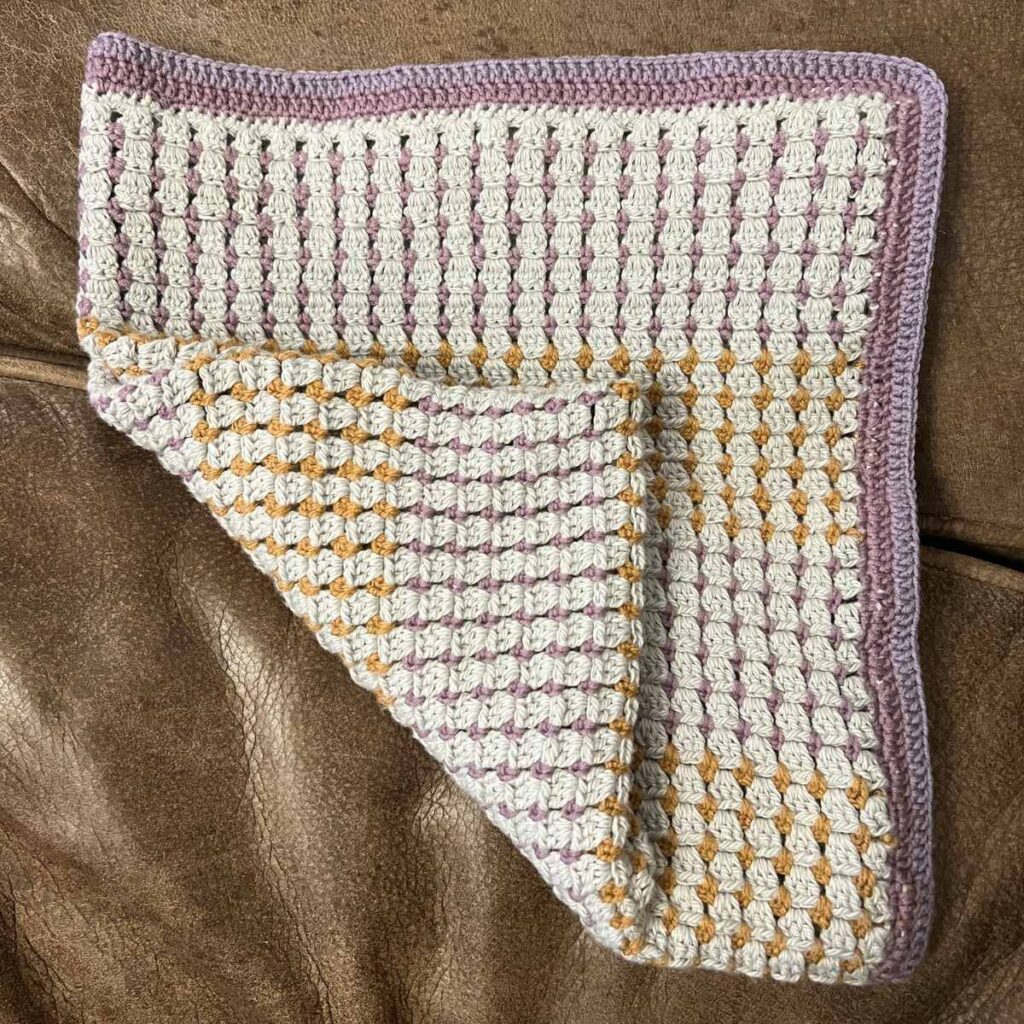
Your most basic crochet stitches are the single, double and treble crochets. The single is the shortest, and the treble the longest. The names refer to the number of loops that you are working with.
You can also give them fun borders and details, that add a bit more to the standard shapes.
Extended Single Crochets
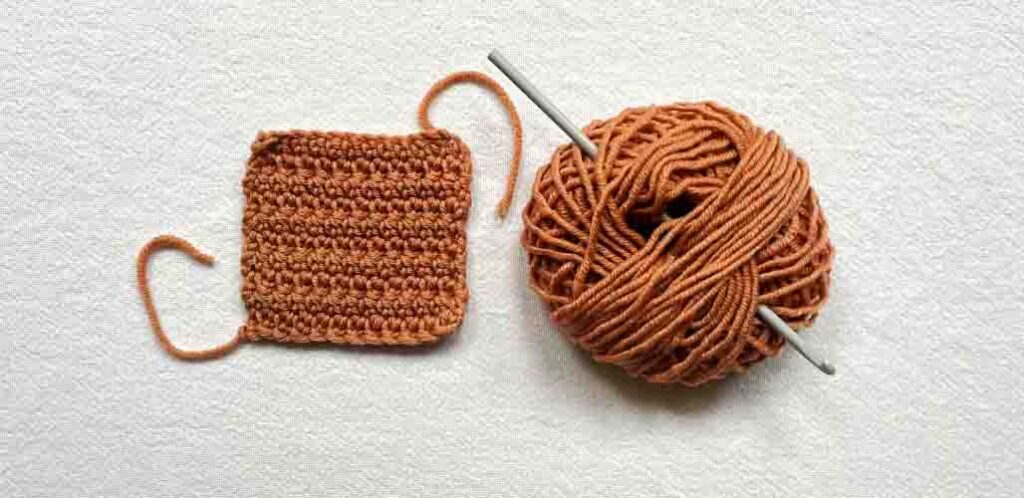
The extended single crochet makes a good halfway bridge between the single crochet and double crochet.
Granny Stitch
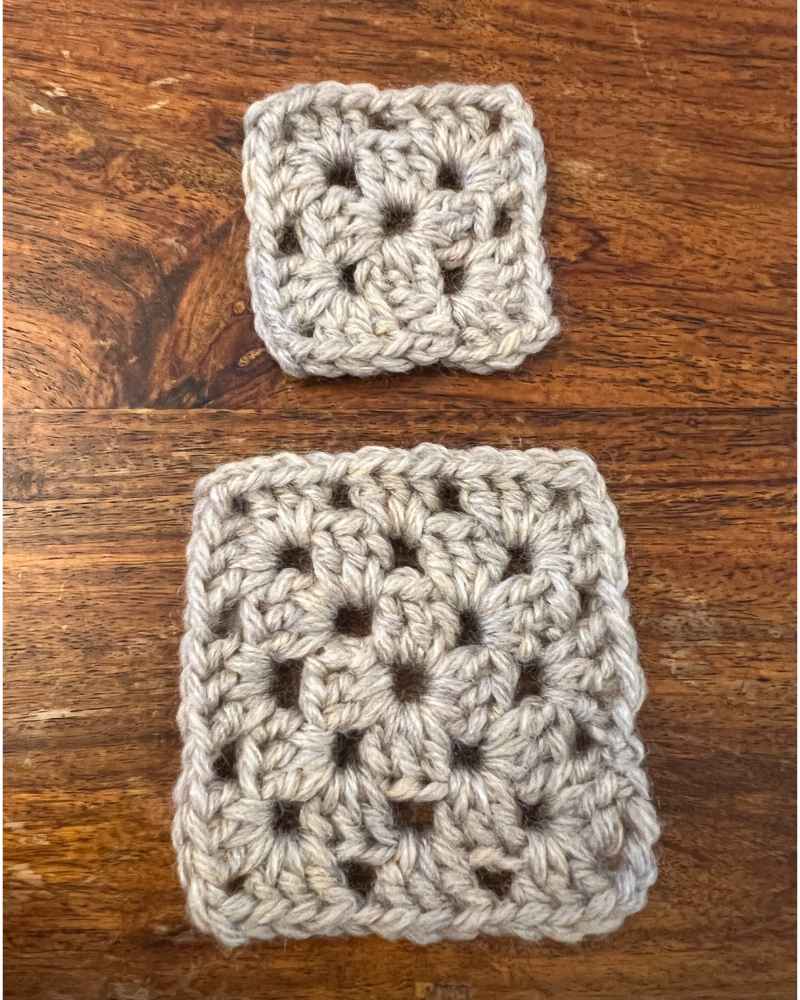
The granny stitch is three double crochets made into the same gap, also known as a cluster. It can be worked straight into a foundation chain or after a border of single crochets. And of course this double crochet cluster is what creates the fabulous granny stripe, square and hexagon blankets.
Solid Granny Stitch

The traditional granny square but with no gaps!
Ripple or Chevron Stitches
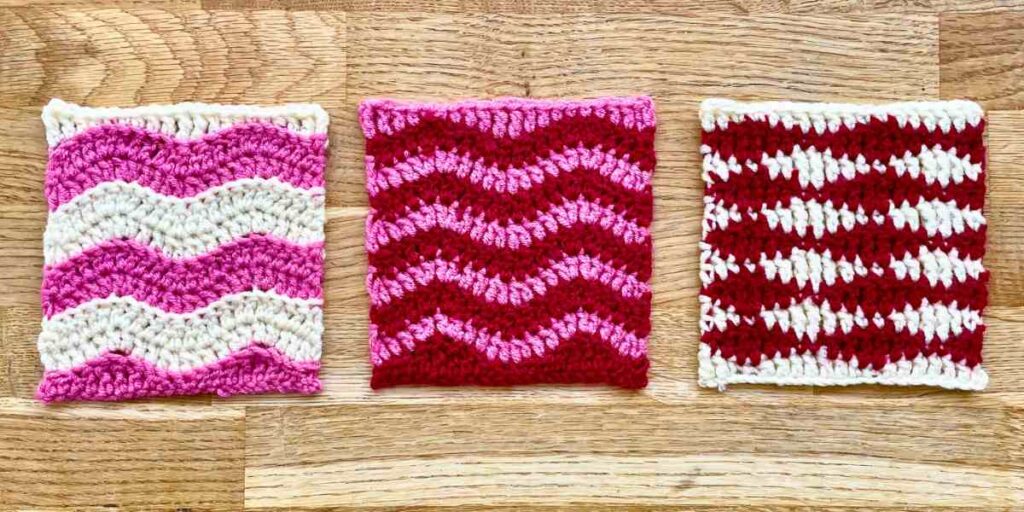
I adore ripple stitches, but they are a trickier and more time consuming way to make a blanket. Especially if you’re a fan of a straight edged border. They involve at regular intervals adding in and removing stitches from the length of the row.
Moss, Linen or Granite Stitches
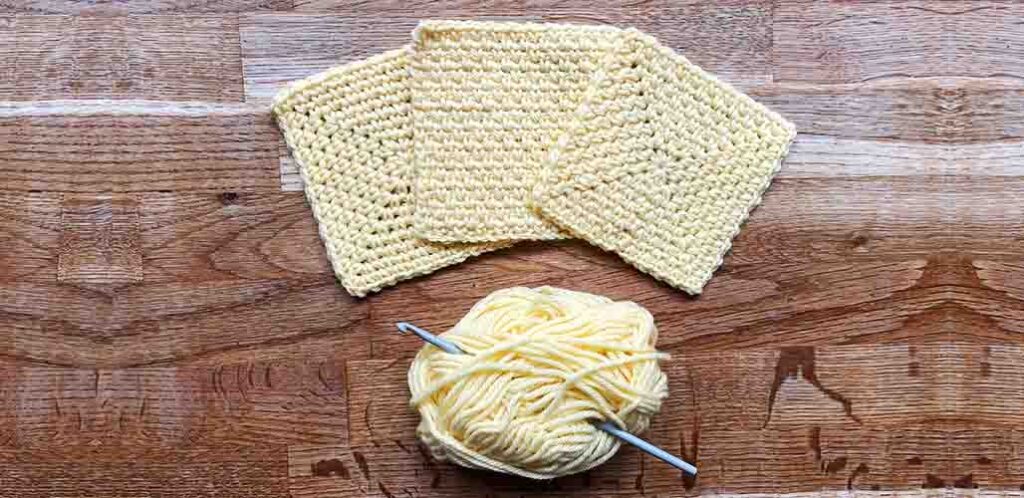
Moss stitch gives your blanket a very thick feel, and has a lovely raised texture to it regardless of the yarn you use.
There are several types of linen stitch, but they are all formed by crocheting in alternating rows in opposite directions.
Waffle Stitch

Waffle stitches aren’t just brilliant because they look like one of the best foods in the universe. They are a straightforward stitch to make, and can even be worked in a round like a regular granny square blanket. All you need to do is work some of your double crochets into the front post of the previous stitch.
Bobble Stitches
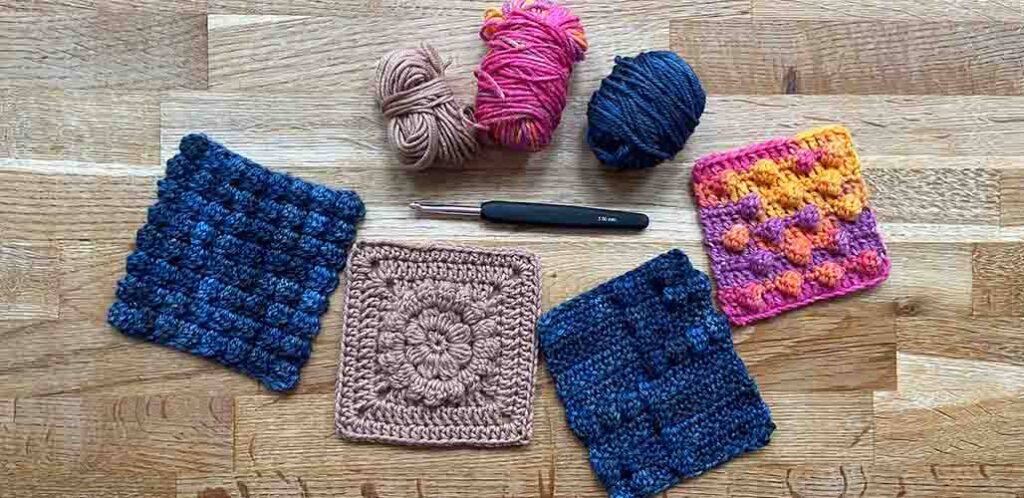
Bobble stitches are an addition to other blanket stitches like single or double crochets. They add a raised spherical area to the material, usually formed with clusters of double crochets that are crocheted together at the top.
Puff Stitches
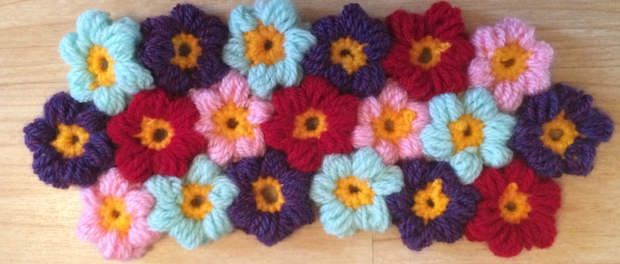
Similarly to a bobble stitch, the puff stitch is comprised of a group of stitches made in one place, however in this case you don’t tighten the stitch to the loop until you’ve finished. They can also be used to make the entire fabric of the blanket, not just accent points.
Star Stitches
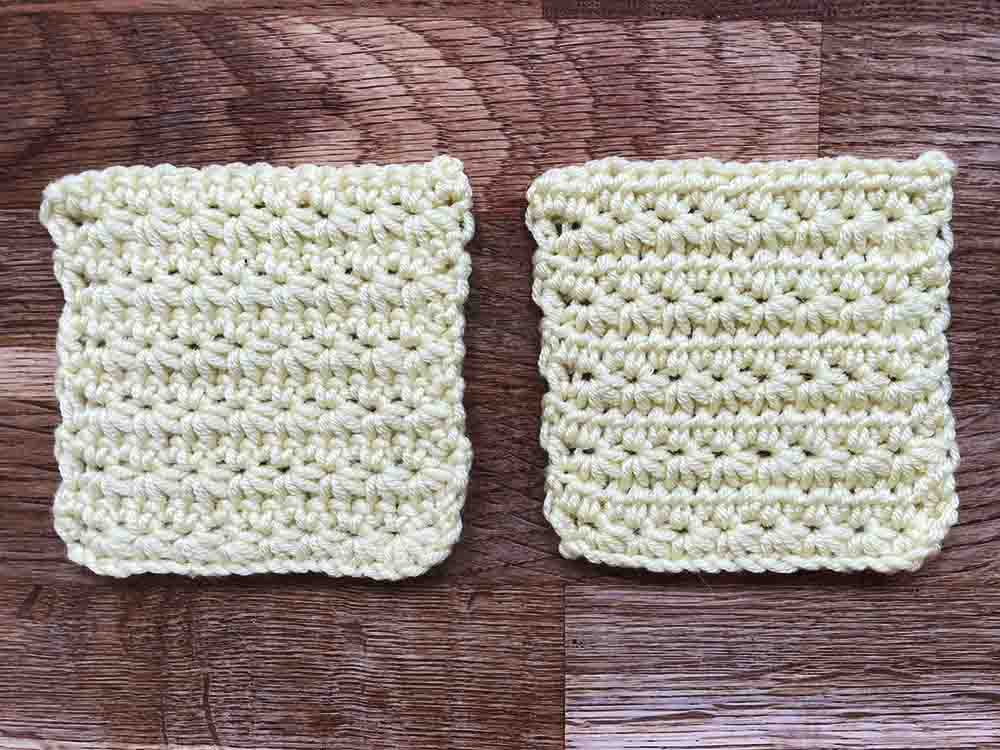
Star stitches, and the blankets that use them, come in many forms. We’ve got several suggestions for you here, all as gorgeous as each other.
Shell Stitches
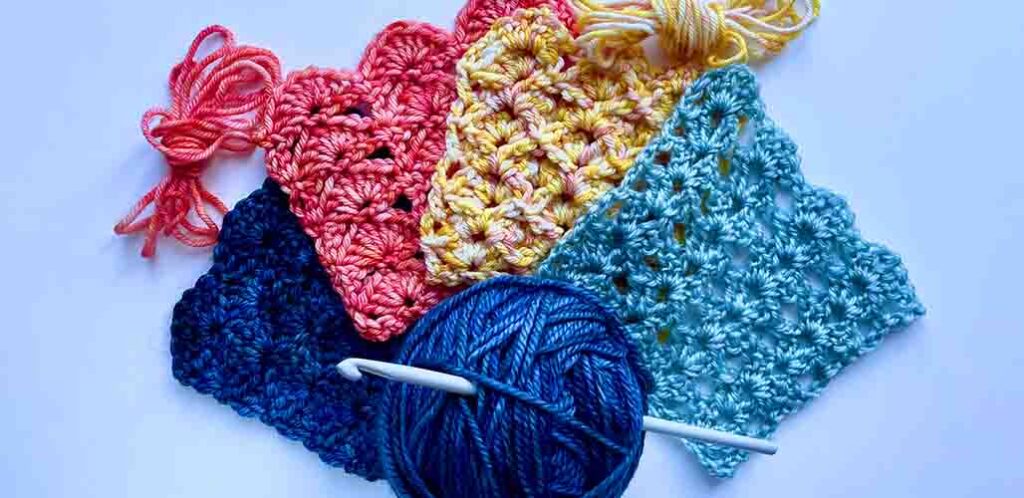
I don’t crochet shell stitches often, but when I do it’s always a bit of a treat. They can only be described as intricate.
The traditional shell shape is easy to make, and adds detail to a range of projects to blankets and beyond.
Borders and Embellishments
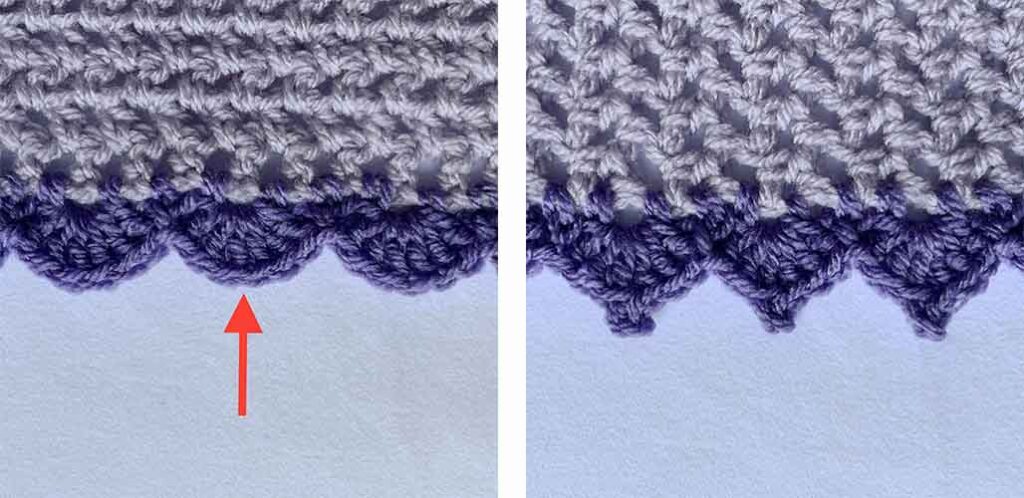
No crochet blanket is complete, quite literally, without a border. Edging your blanket isn’t just a lovely way to make it look more professional, but it is also the easiest way to hide loose threads without endless weaving.
Blanket edging can be as simple as a round of single crochets, to as elaborate as an entirely different stitch, set of tassels or even added embellishments made from different materials.
Whatever your preferred crochet blanket style is, you’ll need to hide those loose ends when you’re done. There are three main ways to do that, and a border is one of them!
